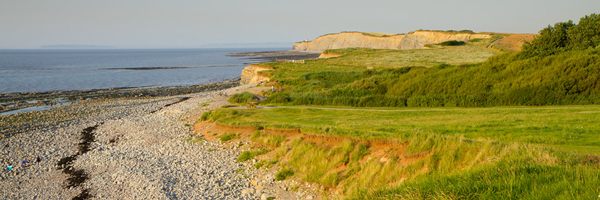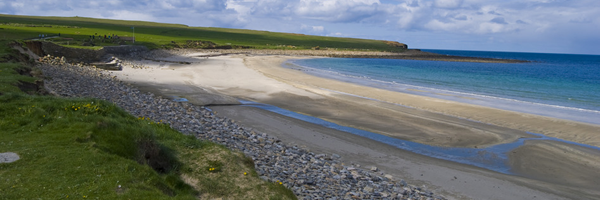Mis-sold statics, no caravans on historic site, riverside planning application, help needed for those without off-road EV charging

Do you have a spare moment or two for some light reading while you relax on the threshold of your caravan? Then read on for a glimpse behind some of the headlines currently making UK caravanning news.
Buyers mis-sold holiday caravans as full-time homes
One of the questions we’re often asked is whether owners of static caravans bought as second or holiday homes can live there permanently all year round.
The answer inevitably depends on the particular local authority licensing held by the caravan park owners. Unless the park is specifically licensed for mobile homes that can be occupied 365 days a year then the answer to those buying a static holiday home is no, it cannot be occupied as your permanent address.
That fact was made painfully clear in a recent report by the BBC recently detailing the disappointments suffered by numerous correspondents who claim to have been cheated out of their life savings after being hoodwinked into buying a static caravan as a permanent – often retirement – home.
The official government website warns holiday homeowners that they could be forced to leave the site if they are living on one without the necessary licence and local authority planning permission. Nevertheless, the BBC estimates that “thousands” are living permanently on sites that are licensed only for holiday use.
Read our FAQs section and find out more about living permanently in a static home and the insurance implications here.
Plans for caravan park on medieval site refused
Yorkshire’s East Riding Council Planning Authority has turned down an application to develop a medieval monument as a 64-pitch caravan site, according to a report by the BBC last month.
Fort Paull – near Kingston-Upon-Hull – was built by the Tudor King Henry VIII as a fort and gun battery on the banks of the River Humber. The 10-acre site hosted a military museum until economic difficulties forced the owner, Brian Rushworth, to close it down in January 2020.
Mr Rushworth insisted that he had tried desperately to identify alternative uses for the site but had concluded that a caravan site would best preserve the monument and its surrounding environment.
The local council disagreed and rejected the planning application.
Riverside Caravan Park in Bleadon planning application
Meanwhile, North Somerset Council has been asked to consider an application to extend the permitted opening times for the Riverside Caravan Park in Bleadon, just to the south of Weston-Super-Mare.
In a story on the 9th of March the Western Mercury explained that the park is currently licensed for opening between March and December each year but must be closed to visitors during January and February.
The current planning application aims to lift that restriction so that the park’s 191 static caravan pitches and 61 touring pitches can be used throughout the year.
Greater support for drivers without off-road EV charging required
Do you tow your caravan with an Electric Vehicle (EV)? It is clearly the more environmentally friendly option but a story in Fleet News on the 26th of March echoed a plea for better help and support for all those who live in built-up areas where their only option is to park on the street.
The journal gave the example of the 75% of homes within the circumference of the M25 circular motorway that have no permanent EV charging point in the homes they occupy.
According to Fleet News, the solution lies in granting greater and more widespread ability for residents of those homes to access “cross-pavement” solutions that allow households to connect to a charger at home – while saving the local authorities any additional work in digging access trenches.
Explore Scotland
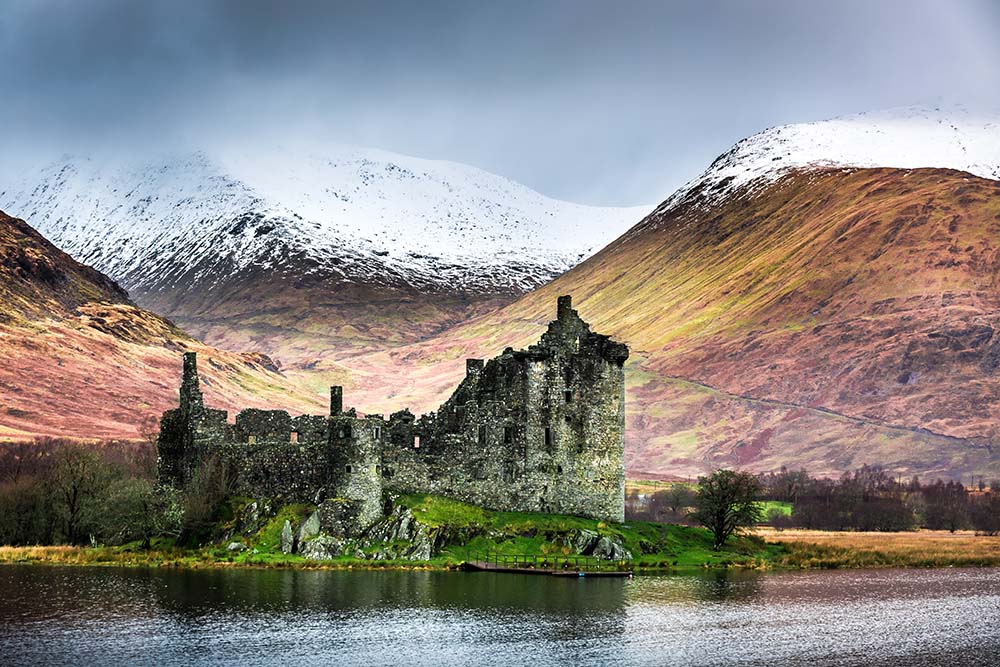
Cross the border from England or Wales, and you’re immediately into a different country – a country of stunning panoramas, rugged coastlines, and unique cultural traditions and history. In fact, we think Scotland has some of the most spectacular scenery in the world! That’s what makes towing your caravan to Scotland such a rewarding and satisfying adventure.
So, let’s explore just a handful of those glorious opportunities.
Climb the highest peak
If there’s a single vista that best sums up all that you expect Scotland to be it is probably one sketched by stunning hills and mountains – landscapes that are among the most captivating in the world.
If you’re after a personal record, of course, the highest mountain in Scotland – and the whole of the UK for that matter – is Ben Nevis in the Cairngorm range. Its summit is an impressive 4,413ft (1345m) above sea level.
But there is a very wide selection of hills and peaks in this most mountainous part of the UK. There are no fewer than 282 mountains more than 3,000ft high – and charmingly called “Munros”. Other classifications of hills and mountains include Corbetts, The Fionas, Donalds, and Marilyns.
Beaches
Once you’ve scaled the heights it’s time to return to sea-level, of course. And in Scotland, that invites you to explore some of the loveliest, sandy, sheltered, and unpopulated beaches in the world.
These are the stretches of coastline where you can truly relax – just wandering along the shoreline, leaving just your footprints as a fleeting reminder in the pristine white sands.
Just to whet your appetite, the Scottish tourist authorities have published a selection of some of the country’s finest beaches but you’ll almost certainly lose no time in discovering your own favourites, such as:
- East Beach, Lossiemouth
In the north eastern part of the mainland, the harbour at ‘Lossie’ is bordered by two magnificent beaches to the east and west. The eastern beach features charming sand dunes and extensive stretches of white sand, providing a delightful setting for walking the dog or simply taking a leisurely stroll with scenic views overlooking the harbour town.
Alternatively, consider exploring the Covesea Lighthouse located on the western side.
- Rockcliffe Beach, Rockcliffe
Rockcliffe is a picturesque Scottish beach offering a delightful coastal experience. Embark on a leisurely stroll during the morning or afternoon along the wooded coastal pathway spanning approximately 5 km between the villages of Kippford and Rockcliffe.
Along the way, you’ll encounter charming houses, vibrant flora, and playful squirrels darting about. At Rockcliffe, don’t miss the opportunity to visit Rough Island, a bird sanctuary accessible on foot during low tide throughout the year, except for May and June when the birds claim the island as their own.
Perched atop the hilltop lies the ancient citadel, Mote of Mark, believed to date back to the 5th or 6th century.
Woodland walks
Wellness and wellbeing are a pair of terms very much in fashion these days. And the many Scottish woodlands offer the perfect backdrop to calming both mind and spirit in an almost ethereal way.
Scottish woodlands are truly places of wonder. Stroll beneath the leafy canopy or simply while away an hour or two as you rest upon a moss-covered stone – and you’ll come away refreshed and rejuvenated.
· Rothiemurchus Forest, Cairngorms National Park
Located in the heart of the Cairngorms National Park near Aviemore, this forest offers a diverse range of landscapes and wildlife, as well as numerous activities to enjoy.
Explore the enchanting surroundings amidst native Caledonian pine trees, with opportunities for lochside strolls, cycling, hiking, horseback riding, tree-top adventures, clay pigeon shooting, and watersports ensuring there’s never a dull moment.
The forest provides convenient amenities such as caravan and campsites and a reindeer centre. Serving as the gateway to the Cairngorm Ski Centre, it’s a must-visit destination if you find yourself in the Highlands.
- Ariundle Oakwoods, Sunart, North Highlands
Ariundle is a captivating destination to explore year-round, boasting an abundance of primitive plants, diverse wildlife, and breath-taking scenery.
This serene nature reserve stands as a precious remnant of the once-extensive native woodlands that adorned Europe’s Atlantic coastline.
Within this verdant sanctuary, a rich tapestry of mosses, lichens, and liverworts thrives alongside a remarkable assortment of wildlife and insects, including the rare the northern Emerald Dragonfly and the Chequered Skipper butterfly. Keep your eyes peeled for Ariundle’s more elusive inhabitants, such as otters, pine martens and wildcats, who may grace you with a fleeting glimpse.
Visitors can enjoy facilities such as woodland and nature trails, adorned with interpretation boards detailing the area’s history, culture, and wildlife.
History
Scotland boasts a fascinating history and vibrant culture, with ancient castles, historic cities, and traditional festivals waiting to be discovered. Explore Edinburgh’s Royal Mile, visit the medieval Stirling Castle, or experience the vibrant music and dance scene at a Highland Games.
There are places where the land itself seems to have soaked up some of the drama and stored it up for you to witness still today. Feel that history in your very bones as you spend an hour or two on the windswept fields of Culloden retracing the final footsteps of the Jacobite uprising in 1746 as the rebel Scots met their match at the hands of the English army.
Alternatively, feel the eery and enveloping doom of betrayal among the clans as you wander the looming mists of Glen Coe.
Castles
If the landscape fails to paint vivid enough pictures of Scotland’s rich history, its treasure trove of castles will do more than fill any gap. Indeed, you’ll be spoilt for choice because it has been estimated that there are more than 1,500 castles dotted about the country’s rugged landscape.
Since the earliest remaining monuments date back to the 12th century, it is hardly surprising that some lie in ruins. Yet equally surprising is the fine state of repair of some of the best known and majestic of Scotland’s castles – from the iconic Edinburgh Castle to the late Queen’s favourite at Balmoral, from Dunnottar Castle in Aberdeenshire to the home of the Duke and Duchess of Argyll at Inveraray Castle.
Visit a distillery
If you have some time left after cramming so much in to your Scottish adventure, why not visit a distillery? Scotland is renowned for its whisky, and no visit would be complete without a tour of a traditional distillery. Learn about the whisky-making process, sample a variety of single malts, and immerse yourself in Scotland’s rich whisky heritage.
We hope this brief blog has given you some ideas of where to visit in Scotland.
This beautiful country offers a unique blend of natural beauty, rich history, outdoor adventure, and warm hospitality that makes it a must-visit destination in the UK.
Caravan sites for adults
Updated April 2024
Contents
Introduction
The freedom of the open road and the ability to take a second home along with you, towed behind your car, has long appealed to many generations of caravanners.
Over time, however, there has been a marked improvement in the facilities and amenities on offer wherever you choose to pitch your tourer. Well-equipped, comfortable and clean washrooms, electrical and water supply hook-ups, individual drainage points and other onsite facilities grant an especially warn welcome for visitors.
This allows anyone with a touring caravan a far wider range of choice when it comes to choosing a campsite – some of which may be more suitable for certain purposes than others.
These days, for instance, caravan sites for adults only – those above a certain age and unaccompanied by children – may be found all around the UK.
This brief guide suggests why adults only caravan sites might appeal to you and takes a look at just some of those sites on offer, their location and their facilities – you might also want to add to this list any others you have found for yourself.

Why adults only caravan sites
Adults only caravan sites typically place a restriction on the ages of those who may be accommodated. This might be designed to restrict use of the site to those beyond their teenage years and those caravanners travelling without children.
What is to be gained by restricting use of the site in this way? There are a number of advantages:
- first and foremost, perhaps, is the overall atmosphere it is possible to create in the absence of children, youngsters and teenagers – an atmosphere that is generally more tranquil, peaceful and quiet;
- such a sleepy, cosy and tranquil environment might be welcome to the more mature caravanner in the same way that it might strike groups of teenagers or boisterous children as the last place to take a holiday;
- sites for the exclusive use of adults, therefore, are likely to be smaller, more out of the way and set in mostly rural locations;
- that is not to say that the owners of adults only caravan sites have a particular antipathy towards youngsters – indeed many such owners are likely to have children or grandchildren of their own – but there is a recognition that sometimes a break away from home without the young ones in tow might be especially relaxing;
One company that specialises in providing caravan sites for the exclusive use of adults, for instance, reports that the majority of its visitors are parents, grandparents and other professionals who frequently have charge of children during the rest of the year and welcome the chance to enjoy a break in their absence from time to time.
With some of these potential attractions in mind, therefore, let’s take a look at the wide network of adults only caravan sites dotted around the UK.
SW England
Think Cornwall and you might imagine the many thrills and spills of activity holidays on the sea or on land – precisely those attractions most likely to draw the younger crowd; think Devon or Dorset and a quieter, more sedate – not to say sleepy – image might be conjured up.
Throughout the SW of England, however, there are caravan sites catering specifically and exclusively for the more mature visitor.
Where to stay
- The Meadows Campsite is a small, sheltered site for grownups only, within easy striking distance of Pentewan Sands, Charlestown, Mevagissey and the Lost Gardens of Heligan. Describing itself as a “natural” site, The Meadows offers some pitches with electric hookup and others for those who want a “proper” camping experience;
- Ideally placed for many of the attractions of south Devon – from the rugged drama of Dartmoor to the rolling costal paths and sandy beaches of the county – is Moor View Touring Park, near the village of Modbury. The site has a total of 68 pitches, for adults only, all with electric, water and drainage hook-ups.

SE England
The counties of Kent, East Sussex and West Sussex offer a wide range of opportunities for enjoying the best of rural England, its attractive coastline, and the tranquillity of an adults only caravan site.
Where to stay
- The Still Acres Touring and Camping Park has been adults only since 2017. It is a family run site not far from Wealden village in Marden, situated in the heart of the countryside of Kent. There are 30 hardstanding pitches with electric hook-up, shower block which is centrally heated and disabled toilet access. Dogs are welcome and have their own area which is fenced off, where they can run freely. The site is centrally located giving easy access to all that Kent has to offer;
- Bridge Farm House Caravan Site is open to Caravan Club members and adults only. It offers accommodation for a maximum of just five touring caravans in a distinctly rural setting of West Sussex (between Haywards Heath and Burgess Hill) that is peaceful and quiet yet also close to principal attractions of the area.
Wales
Wales has long been a favourite destination for touring caravans – from the green, green valleys of the south to the rugged splendour of the Snowdonia National Park in the north.
Where to stay
- South Wales Touring Park at Llwynifan Farm in Llangennech near Llanelli, in South Wales, offers a quiet haven of peace and tranquillity for exploring the Welsh valleys, the Brecon Beacons and the Gower peninsula. It is a small, family run site offering a maximum of 25 touring pitches, all on hard standing, and ten of which are fully serviced;
- Daisy Bank Touring Caravan Park is set in the heart of mid-Wales – a location that is perfect for exploring the rural countryside of both Powys in Wales, Shropshire in England and all of the Welsh Marches. The seven-acre site makes for a tranquil setting for what is a relatively large caravan site – but for the exclusive use of adult visitors;
- Parc Derwen is a separate, adults only, part of the larger Bron Derw touring caravan park situated between the iconic North Wales attractions of Betws-y-Coed and the mountains of Snowdonia. The Parc Derwen area of Bron Derw has a total of 34 fully serviced pitches for adults only.
Midlands
The heart of England represents an intriguing mixture of industrial heritage and wonderful countryside. When you escape to your peaceful, adults only caravan site, therefore, you may enjoy the benefit of getting away from it all, whilst still being just a stone’s throw from major cities and transport routes.
Where to stay
- Typical of that rural setting close to major amenities is Somers Wood Caravan Park in the midst of the Forest of Arden, which lies between the major conurbations of Birmingham and Coventry. Birmingham city centre is just 30 minutes away, whilst the National Exhibition Centre (NAC) is only a six-minute drive. There are 48 pitches on either grass or hard standing, all have 10 amp electric hook up and four are fully serviced;
- The Turbles Holiday Accommodation and Caravan Site is located in a rural and peaceful location very close to The Malvern Hills on the Castlemorton Common in Worcestershire. Just 6 miles from Malvern town the site offers stunning views out over Malvern and pitches that are well maintained and spacious, with electricity hook-up and water to all pitches;
- Springhill House is one of the Camping and Caravanning Club’s certified sites, a designation given to small, family run sites with accommodation for no more than five touring caravans. This well sheltered site, exclusively for adults, has both hard standing and grass pitches for touring caravans.
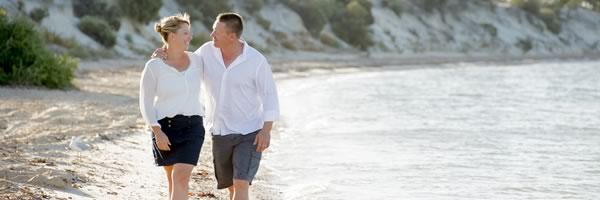
East Anglia
For some reason East Anglia tends to be overlooked when it comes to touring with a caravan. For those in the know, and looking for an escape from the crowds, however, this may be no bad thing. In order to make the most of the peace and tranquillity which much of East Anglia has to offer, the counties of Norfolk and Suffolk provide more than their fair share of adults only caravan sites.
Where to stay
- Billed as North Norfolk’s only clifftop park for touring caravans, Sandy Gulls has the further distinction of being for adults only – some peace and quiet, therefore, with which to enjoy the bracing air of the county’s coastline and sandy beaches. All 35 touring pitches have sweeping views of the sea and there is direct access to the beach a short walk away;
- Also in North Norfolk, just six miles from the coast in the countryside setting of the village of Erpingham is Deers Mead Caravan and Camping Park. Pitches on this adults only site are on either hard standing or grass, but all are described as “super pitches” with their own 16 amp electric, water and drainage points, TV point and free WiFi;
- To the south, you might want to take advantage of the small, family run and Camping and Caravanning Club certified site at Frog’s Hall near Suffolk’s historic town of Eye. The site offers just five pitches for touring caravans, for the exclusive use of adults to enjoy the flora and fauna of this quiet corner of Suffolk’s countryside.
NE England
The wild coastline of Northumberland, the peace and quiet of the Yorkshire Dales or the stark beauty of the North York Moors, NE England offers many an escape from the hustle and bustle of the kind of city life you might find, say, in Newcastle.
What better way to enjoy some me-time, therefore, than on a site for your touring caravan which you can guarantee to be free of children and other young people.
Where to stay
- Relax in the quiet hamlet of Thornton le Dale, sheltered from the rugged landscape of the North York Moors National Park at the family run, adults only, Overbrook Caravan Park, close to the town of Pickering;
- Think of freshwater fishing and scenes of perfect tranquillity and relaxation are likely to spring to mind. The adults only Chainbridge Touring Caravan Site, near Berwick on Tweed is only 50 metres from the river from which this border town takes its name – only yards from an idyllic fishing spot. The site offers just 18 pitches, and optional electric and fresh water supply points, with each hard standing pitch spacious enough for your caravan, its awning and your car.

NW England
Caravanning in the NW of England is likely to spell one thing only – the Lake District. But that is a district which spans many different locations, each with its distinct character and charm. Many of these may be enjoyed from the peace and tranquillity of an adults only touring caravan site.
Where to stay
- You might want to start out with a relaxing holiday in the southern part of the Lake District at the adults only Ashes Caravan Park near Kendal. Set in a quiet and peaceful corner of the Lakes, the site is still just a few miles from the main M6 motorway, so readily accessible. Touring pitches are on all-weather hard standing and each has its own electric hookup;
- Larches Caravan Park on the northern fringe of the national park, midway between Carlisle and the coast at Maryport. The minimum age for anyone staying on the site is 18. There are 35 touring pitches are available, each with its own electric hookup.
Scotland
Say that you want a break in your caravan touring Scotland and you have a whole country to explore – highlands, lowlands, lochside and seaside. With such a wealth of different locations in which to relax and unwind it is difficult for this brief guide to do any justice at all to the many adults only sites within Scotland. Here are just a few suggestions.
Where to stay
- In the south of the country, just eight miles from Dumfries is the Red Squirrel Campsite Glenmidge. Surrounded by wooded hills, this small adults only site offers peace, quiet and seclusion. Just as the name suggests, this is one of the few areas of the UK where red squirrels may still be found. The site’s pitches for touring caravans are all on unmarked grass areas;
- If you are in search of some solitude amidst the grandeur of the Scottish Highlands, the place to pitch up might be Faichemard Farm Campsite – a site for the exclusive use of those aged 18 and over. Each of its 35 pitches has an individual character and these are spread generously over a ten-acre site;
- In Perthshire, near the town of Errol, you are likely to share your touring caravan pitch not with children or other youngsters, but free range ducks and hens! This is the Fernlea Caravan Club certified site for adults only. As such, it is restricted to a maximum of just five touring caravans and visitors must also be Caravan Club members.
Summary
Whatever your reasons for wanting to enjoy a holiday free from the intrusions and demands of children and other young people – whether your own or someone else’s – you are almost certain to find a caravan site specifically intended for precisely that purpose in practically any part of the UK.
Hopefully, this guide has provided some insight into just how that demand is already being met in just about any part of the UK you may choose to visit.
Creature comforts, Belvoir Castle, Cotswold farm caravans, double award for Bailey of Bristol
The beginning of any new caravanning season always comes with an air of expectant excitement. To catch up with just some of the headlines airing at the start of what’s likely to be a busy time for caravanners, just read on.
Here are some of the latest UK caravan news and holiday trends.
Caravanning creature comforts
In a story on the 21st of February, the Caravan Times lifted the lid on some of the home comforts travellers are likely to take on holiday with them:
- when pitching up for the night, one of the first things most caravanners will do is put the kettle on and make a soothing and refreshing cup of tea – so, stock up with plenty of teabags and, of course, the tea-making kit;
- to relax in comfort, more than a third of travellers (34%) take their favourite fireside slippers with them;
- 22% revealed that they like to curl up with their head on their own pillow from home;
- the survey cited by the Caravan Times said that 16% of such travellers refuse to go anywhere without their chosen brand of ketchup, while 15% insisted on taking a loaf of sliced bread with them;
- a further 12% travel with their favourite cereal aboard and 11% the squash they like to drink.
The great news for caravanners, of course, is that you have all these items already in your tourer or static home – with no need to worry about whether you will be able to get your creature comforts through airport security or customs!
Plans submitted for 140-pitch caravan site at Belvoir Castle
The leading Caravan and Motorhome Club is looking to widen its net of sites still further with the creation of 140 touring pitches on a new site close to Belvoir Castle, near Grantham, Lincolnshire.
Describing the planning application before Kesteven Council, on the 28th of February the BBC noted that the Club already lists 160 named caravanning and camping sites. The current application for the development of a 10-hectare site near Belvoir Castle included touring pitches, glamping pods, camping grounds for tents, a reception building, washrooms and toilets, and a children’s play area.
The proposed development involves the closure of the car park that currently serves the Dirty Duck pub to create access roads to the caravan site and parking for up to 186 vehicles.
Cotswold couple aim to transform farm into a caravan paradise
The owners of Lowerfield Farm, which is currently run as a successful bed and breakfast in Willersey, plan to extend the business by creating pitches on adjoining land for up to 20 caravans and motorhomes, according to Gloucestershire Live recently.
Screened from the nearby road and neighbouring homes by fences and hedges, the caravan site would offer pitches laid out on environmentally friendly matting, with electric hook-ups and sewage disposal points.
The owners’ planning application makes clear that no long-stay or static caravans are intended for pitches on the site that will stay open from March until October only. Plus, sheep will be allowed to graze there during the closed season.
Bailey of Bristol claims award double in The Caravan and Motorhome Club Motorhome Design Awards
Iconic British manufacturer Bailey of Bristol has scooped a trophy case of awards at the Caravan and Motorhome Club’s Motorhome and Campervan Design Awards recently adjudicated at the NEC’s annual Caravan, Camping, and Motorhome Show in February.
The top awards came as winners of the category for van conversions that have a pop-top or rising roof of 6 metres and under – won by Bailey’s Endeavour B64 campervan and first place for the all-new Alora 69-4S in the class for three or four-berth coachbuilt motorhomes of 7 metres and under.
Furthermore, Bailey’s Adamo 75-4DL took second place in the category for three or four-berth coachbuilt motorhomes over 7 metres in length and third place for the Endeavour B62 in the class for van conversions with a fixed roof of 6 metres & under.
Coastal campsites for Caravanners – where to go and where to pitch up
Updated March 2024
Contents
Introduction
The coastline of the UK is around 8,000 miles – a very considerable distance to say the least.
Just as you would expect of such a coastline, there is a huge number of places where visitors flock in the summer and go to blow the cobwebs away on a blustery winter’s day. At any time of year, a trip to any one of thousands of spots on the coast is likely to be worth a visit.
If you have hitched up your caravan behind you, any visit can be made still more enjoyable and give you the chance to make the very most of your journey there – in your home away from home.
Because we have so much coastline, a spot by the beach is never far away and there is a huge range of caravan parks on which to pitch your caravan once you get there.
So great and varied is your choice that this brief guide could never claim to be exhaustive – on an entirely subjective basis, therefore, it is designed simply to whet your appetite!
Cornwall
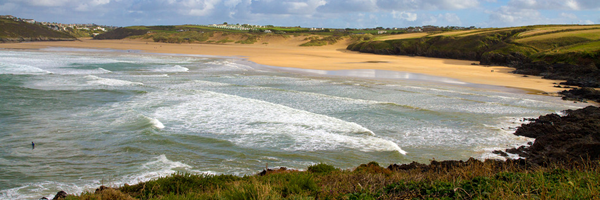
This large peninsula in the south-west of Britain is surrounded on three sides by the sea and claims a coastline in its own right of some 300 miles, according to the local tourist board Visit Cornwall.
Situated at the most southerly point of mainland UK, the climate is probably the mildest the country has to offer and its glorious beaches are perhaps the main attraction of a stay in Cornwall, says the national tourist agency Visit Britain.
With the massive lure of its golden sands and the sheer length of its coastline, it is little wonder that caravan sites on this sunny peninsula abound. Here are just a few of them:
- at Sennen Cove Camping and Caravanning Club Site you could not be any closer to the edge of Great Britain and the appropriately named Lands End. Sennen Cove offers an atmosphere of sheltered tranquillity from which you can enjoy the beaches of Cornwall’s northern and southern coasts. There are 72 grass pitches on the site;
- if it is surfing from some of Europe’s best beaches for the sport, Newquay is likely to be your choice of venue and Treloy Touring Park is just minutes from the town and its beaches. The park has its own outdoor swimming pool and pitches, on grass, that provide either electric hook-ups or are fully serviced;
- The charming old fishing port of Padstow and its neighbouring beaches attracts visitors throughout the year and if you have your touring caravan in tow you might want to pitch up at Padstow Touring Park, just a mile’s walk from the heart of the town. Standard, standard plus and deluxe pitches are available, the latter on hard standing;
- rated by the Camping and Caravanning Club as one of Cornwall’s top sites for beaches, the touring park at Bude lets you explore this part of the North Cornish coast, its sandy beaches and the ancient ruins of King Arthur’s castle at rugged Tintagel. The site has around 100 pitches, many of them on hard standing;
- Trevornick Camping and Caravan Site is but a short walk across the fields to an ideal, sandy, family-friendly beach extending for a mile or so at Holywell Bay and owned by the National Trust. There are extensive facilities for touring caravans, spread across seven fields and offering six different types of pitch.
Devon
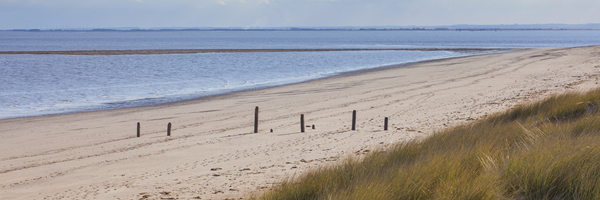
You might want to save yourself the longer drive to the busier Duchy of Cornwall by instead stopping off to enjoy the equally fabulous beaches of its twin sister Devon. It has both a northern and a southern coastline which together extend for a total of 450 miles, with one-third of that distance managed by the National Trust.
North Devon is where Exmoor comes down to the sea, providing dramatic and rugged cliff walks interspersed by sandy coves and beaches. The gentler southern coastline has rolling countryside as the backdrop to its sandy beaches, many of which are ideal for family outings.
Sites for touring caravans are many and varied, with just a selection highlighted here:
- Watermouth Cove Holiday Park is on Devon’s north coast, near the town of Ilfracombe. The park is set right beside a sheltered cove in an otherwise rugged and dramatic coastline, offering immediate access to its tranquil beach. This relatively large park has all weather, grass and hard standing pitches with electric hook-up;
- views of the sea from practically every one of its 50 individually marked pitches can be enjoyed at Little Meadow Campsite, situated between Ilfracombe and Combe Martin on Devon’s north coast. Pitches for touring caravans are described as generously sized and some (but not all) have electric hook-up;
- Soar Mill Cove, South Sands and the access to the long coastal path are all within just a mile of Higher Rew Caravan and Camping Park in the verdant South Hams on Devon’s south coast;
- Salcombe Regis Touring Caravan Site is well situated for easy access to Devon’s Jurassic coast which extends all the way into neighbouring Dorset. Close to both Salcombe and Sidmouth, the site offers pitches that are almost all on hard standing, each with its own electrical hook-up and water tap.
Dorset
For 95 miles from its boundary with Devon, Dorset is home to the famous Jurassic Coast – so named because of its geological treasure trove or fossilised remains stretching back 185 million years. Not for nothing has this natural wonder been accorded World Heritage status.
Thanks to its location in the middle of southern England, Dorset’s coastline is not just for geology buffs, but has mile after mile of coastal paths, enticingly secret coves and both pebbly and sandy beaches.
Unsurprisingly, the Dorset coastline offers a number of sites to visit with your touring caravan, including:
- at Burton Bradstock, near Bridport in the east of the county is Freshwater Beach Holiday Park, with its 400 pitches for touring caravans, each with its own electric hook-up. Situated on what is fondly known as Dorset’s Golden Coast, the park is open from mid-March until mid-November;
- just 3 miles from a gloriously sandy beach at Charmouth you will find Monkton Wyld Farm Touring Caravan Park, set in the Dorset countryside and rarely seeming to be overcrowded. There are 150 generously sized pitches for touring caravans, 100 of which are on hard standing and all with electric hook-up;
- Lyme Regis is the setting for the novel The French Lieutenant’s Woman and the coastal town is little changed from the one painted in the book. Just a mile’s walk upstream along the banks of the River Lym can be found Hook Farm Camping and Caravanning Park, with its 100 pitches for touring caravans, motorhomes and tents.
Sussex
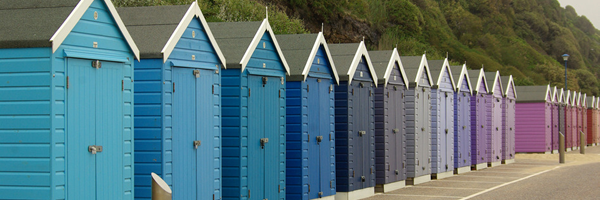
The county of Sussex on the south-eastern coast of England has such a long coastline that it is divided into West and East Sussex, each with its fair share of beaches, coastal walks and historic sites, all within a stone’s throw away from a nearby campsite for your touring caravan.
From the towering heights of mighty Beachy Head to the charms of the Brighton made famous by a former Prince of Wales’s Pavilion, the county’s tourist board, Visit Sussex, can guide you towards just some of the many attractions on offer.
For those caravanners with a hankering to be close by the sea anywhere along the county’s coastline, some of the following sites may appeal:
- the seaside, the bright lights and the enduring charm of a Victorian resort, Brighton has it all, so where better to park up your touring caravan than the Brighton Caravan Club Site. It is just 2 miles from the town itself, in a tranquil fold of the South Downs and offers a total of 213 pitches for caravans, 126 on hard standing and 11 of which are fully serviced;
- you would be hard pressed to find a more historically iconic location close to the coast than the scene of the Battle of Hastings. Although the sea has receded some few miles further away than in 1066, Sheer Barn Holidays and Touring Park remains the ideal base from which to explore the battlefield, the old port of Hastings and the surrounding coastline. The park has a selection of different pitches, from grass to hard standing, with or without electric hook-ups.
Kent
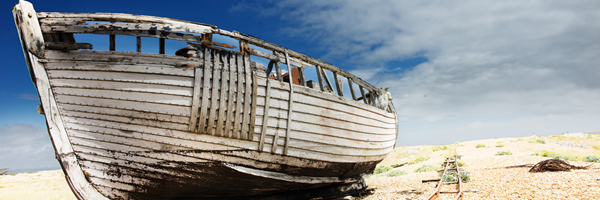
In the south-eastern corner of the British Isles lies the Garden of England, our closest point to continental Europe, yet still the first line of defence of the nation’s independence.
As the local tourist board, Visit Kent, points out the county was once a separate kingdom in its own right, and the place still seems to carry echoes of that distinctive history.
Naturally, the county has a wrap around coastline that borders both the English Channel and the edge of the North Sea above the Thames estuary. If you want to get away in your caravan to a place by the sea in Kent, therefore, there are a number of places you might want to visit:
- there may be times when you want to pitch your caravan for just a night or two near a coastal port just for its ease of access to a Channel crossing. If that is your aim, Hawthorn Farm in the village of Martin Mill is just a mile or two from the bustling port of Dover and the seafront at St Margaret’s Bay. The site’s grass and hard standing pitches are spread across 28-acres;
- if you are heading for the east Kent coastal resorts of Margate and Ramsgate, Quex Park in Birchington is handily placed for both. This is a large park for touring caravans and motorhomes only, no tents are allowed.
South Wales
Cross over the border into Wales and you are in a different country, scenically, historically and culturally – even the language may be different.
Through its industrial heartland of the Welsh valleys to the green and pleasant Pembroke peninsula, the principality is a land of contrasts – and these become nowhere more apparent than along its coastline.
Barry Island, for example, is close to the capital, Cardiff, and the faded industrial glory of Swansea Bay, yet has a stunning, golden sandy beach. As one of the first places English visitors to South Wales may encounter, it is a taste of still further blue star beaches to come:
- just a couple of miles inland from Barry is Happy Jakes Touring Holiday Park, where all 30 of its caravan pitches are south facing. The Jake in the park’s name is a reference to the owners’ son and a way of letting disabled caravanners know the importance they place on providing access for those with a disability;
- travel further westwards along the coast and just past Swansea, you will find the gateway at Mumbles to the stunning Gower peninsula, designated Britain’s first Area of Outstanding Natural Beauty in 1956. To share a taste of life on the Gower and sample within a short walking distance the sandy beaches of Oxwich and Three Cliffs Bay you might choose to stay at the Nicholaston Farm Camping and Caravan Site. The majority of pitches for touring caravans are on hard standing.
- visit the Caravan Club’s St David’s Lleithyr Meadow site for touring caravans and you have mile upon mile of coastal path in both directions at this most south-westerly part of Wales. The site offers a total of 115 assorted pitches for touring caravans.
North Wales
North Wales is dominated by Snowdonia National Park and the majestic Mount Snowdon itself, the highest mountain in England and Wales. More down to earth, there are plenty of other things to do and to enjoy than scaling the dizzy heights – as the Welsh tourist Board, Visit Wales, is keen to point out.
There is the distinct charm of the island of Anglesey, where you are never so far from the coast, and beaches along both the north Welsh coast and to the south of Snowdonia:
Seaside towns in North Wales are readily accessible from some of England’s biggest, busiest and once industrial towns – the seaside resorts therefore have a nostalgic character all of their own. Towns such as:
- Llandudno – with its iconic rock, the Orme, which can be seen from nearby touring caravan park, Tyydyn Du. The mainly grass pitches all have 16 amp electrical hook-up;
- Abersoch – where you might choose to pitch up at Hen Siop y Mynydd campsite, overlooking the dramatic if somewhat alarmingly named Hell’s Mouth (Porth Neigwl);
- Barmouth – Hendremynach or the Barmouth Touring Caravan and Camping Park is practically on the beach at Barmouth and offers both grass and hard standing pitches, all with 10 amp electric hook-up.
East Anglia (Norfolk, Suffolk and North Essex)
Even the local tourist boards seem to recognise the temptation of many potential visitors to overlook the charms of East Anglia – which has probably the longest coastline of any region of England.
North Norfolk has some wonderfully sandy beaches, Suffolk has pebbles, and Northern Essex still retains some surprisingly quaint and old English coastal villages.
East Anglia occupies a large region of England and so offers plenty of contrast and variety as some of these caravan sites along its shores might illustrate:
- Walnut Farm Caravan Park is a short distance from several sandy beaches in Norfolk and only half an hour’s drive from the seaside resort of Great Yarmouth. The park has 20 large pitches, each served by a 16 amp electric hook-up;
- Cakes and Ale Holiday Park – this delightfully named caravan site lies in the centre of Suffolk’s Heritage Coast. Pitches for touring caravans are deliberately left with plenty of space between them, so you can enjoy the best of the tranquillity, peace and quiet; (Read our blog written by Cakes and Ale on what it is alike to run a holiday park)
- Grange Farm Campsite makes a point of being mainly for adults and only a few pitches are reserved for families with children. A small, quiet site, it is close to the popular beaches of Clacton, Frinton-on-sea and Walton on the Naze.
North England
Although included under the same heading in this brief guide, many would argue that northeast and northwest England are as different as chalk and cheese.
On the east coast there is the bird and seal watchers’ paradise of the Farne Islands, set just off the Northumberland coast and the sandy beaches that continue down through County Durham, as far as the drama to be had where the North York Moors also reach the sea.
On the west coast in Lancashire, there is the huge sweep of Morecombe Bay, the bright lights and kiss-me-quick hats of Blackpool, and the point where the mountains of the Lake District come down to the sea.
A region to be enjoyed in two halves, therefore, here are a few suggestions about where to pitch your caravan:
- Seafield Caravan Park is the ideal base from which to explore the Northumberland coast, Farne Islands and the imposing castle at Bamburgh Head. Pitches for touring caravans on the site are a particularly high standard, with each one on hard standing and electric, water, drainage and sewerage points illuminated by an individual light;
- Middlewood Farm Holiday Park is set on the rugged North Yorkshire coast, near the scenically charming Robin Hoods Bay, nestled in its on sheltered cove. The site has a 5-star award and all of its pitches for touring caravans are on hard standing, with electric hook-ups;
- if you want the bustle of Blackpool yet an escape at the end of the day to a semi-rural setting, the site for you might be Beechwood Stables Caravan Site over on the North of England’s west coast. A relatively small site, all pitches for touring caravans are on hard standing;
- Seacote Caravan Park is right on the beach at St Bees in a unique corner of England where the edge of the Lake District meets the sea. Pitches for touring caravans are all on hard standing and some have a grassed area to the side to accommodate awnings. All have 10 amp electric hook-ups and mains water.
Scotland

You probably don’t need the reminder from Visit Scotland that the country is world famous for its stunning scenery, its culture, its diversity – and, of course, its whiskey!
What may be less commonly quoted, though, is the fact that a country the size of Scotland and its many outlying islands, has an enormously long coastline – perfect for those who want to take their caravan north of the border and still pitch up on a coastal campsite.
From north to south, east to west, Scotland offers tremendous variety and diversity, making a short selection of coastal caravan sites especially difficult. The following, therefore, are very much just for starters:
- if you would prefer the gentler surroundings of the Ayr peninsula, you might want to consider the Heads of Ayr Caravan Park, on the beach, just five miles south of the town of Ayr itself. A relatively small number of pitches for touring caravans is offered, but each has its own electric hook-up;
- in northeast Scotland, Banff Links Caravan Park is right alongside the sea front and lays claim to being situated in one of the driest regions of the country. For touring caravans the site offers 38 pitches, all with electric hook-up;
- you’re almost certain to have heard of the Mull of Kintyre – now you can take your second home there. Muasdale Holiday Park overlooks the wide sweep of this Argyle peninsula and is ideal for island hopping. But there are pitches for only 8 touring caravans – each with electric hook-up – so advance booking is essential.
Northern Ireland
The stunning coastline of Northern Ireland is probably rarely visited by English caravanners – because of the relatively high cost of the ferry across the Irish sea.
But the voyage might prove well worth the time and expense in order to enjoy the dramatic scenery and unspoilt beached which you might find along a coastline which – according to Discover Northern Ireland – is some 124 miles or 200 km long.
From the world famous Giant’s Causeway in County Antrim, the golden sands of many beaches in Londonderry or the Mourne Coastal Route in County Down, there are certain to be pleasant surprises around every corner.
Here are some of the touring caravan sites at which you might want to stay:
- Ballyness Caravan Park in Bushmills, in the north of County Antrim, is just minutes from the iconic Giant’s Causeway and the sandy beach of Whitepark Bay. The park offers 50 fully serviced pitches for touring caravans, all of which are on hard standing;
- Ballyleese Town and Country Caravan Park is close to Portstewart on the north coast of Londonderry, near to The Strand beach and golf links. It is described as a family-friendly caravan site.
Summary
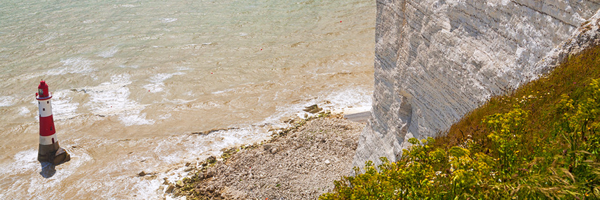
The British Isles are naturally surrounded by the sea and therefore have an extremely long coastline. If it is the coast that draws you towards destinations for your touring caravan holiday, therefore, you are unlikely ever to be at a loss for somewhere to go – be it in England, Wales, Scotland or Northern Ireland.
This brief guide has only scratched the surface with suggestion about just a few of the coastlines you might explore and the touring sites you might choose as your base.


